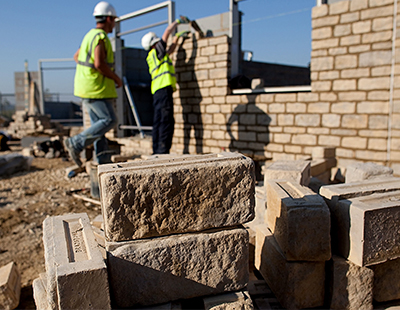Residential developers now have a unique opportunity to provide much needed high-quality accommodation in a city currently with limited stock, says Knight Frank.
Recent Energy Performance Certificate data - regarded as a forward indicator of housing supply - point to a decline in development in the first nine months of this year. Overall, the number of EPCs granted to new homes in the city fell by five per cent compared with the same period in 2022 to just over 3,000.
This is 60 per cent below the city’s annual housing target of 7,136 homes per year, using the government’s standard method of calculating housing need.
Birmingham currently has plans for a number of landmark, mixed-use schemes over the next decade. According to Knight Frank there are currently 18,575 units across 85 schemes of at least 10 units with detailed plans granted in Birmingham.
Of these, over half are schemes of 100 plus units, while 13 are schemes of 500 plus. These major developments include New Monaco on Bristol Street, comprising 1,050 units; Upper Trinity Street, a mixed-use scheme with 943 apartments; and the 928-home Stone Yard scheme.
House prices in the city have slowed in 2023 from a recent peak in the 12 months to September 2022 to three per cent this year to June, Knight Frank says. The pandemic period fuelled a ‘race for space’, leading to a rise in migration from London into Birmingham and boosting housing demand. This demand has since slowed but prices still outpace those in London.
The construction of the High Speed 2 rail link to London has certainly been a driver for both residential and commercial development in the city, paving the way for Blue Chip companies, such as Goldman Sachs and HSBC, to open new offices in Birmingham.
Recent data show a significant increase in high earners moving from London to Birmingham with a 26 per cent rise in numbers of movers earning over £70,000 per year in 2022 compared to 2021 according to Experian. The overall growth of the city is expected to grow by two per cent over the next ten years reaching 3.2m by 2034 according to Oxford Economics.
The city’s economy is also growing, with Oxford Economics forecasting an increase of 16 per cent in Gross Value Added over the next decade from £27.8 billion to £31.8 billion in 2033 – ahead of the 15 per cent forecast across the rest of the UK. Key growth areas are set to power the region’s economy as it moves away from its manufacturing heritage towards life sciences, tech and logistics.
Despite this growth, high inflation and elevated finance costs remain a considerable pressure on households and businesses. While housing affordability in Birmingham is less acute an issue than other areas of the UK, it remains a key focus.
Birmingham continues to attract a large student population to its five universities and currently has the seventh highest enrolment figures out of 169 universities across the country. Rental growth for purpose-built student housing increased 2.1 per cent in 2021-22 according to Knight Frank’s Student Property Index while the Build To Rent sector is seeing 7,206 new homes expected to complete by 2026 with 7354 under construction and a further 8,196 have full planning granted.
Will Jordan, a partner and head of Birmingham residential development at Knight Frank says: "In the face of market challenges, Birmingham leads the way as one of the UK’s major regional cities, attracting forward thinking developers and investors looking for opportunities within the build to rent and open sales markets.
“With the increase in choosing to migrate to Birmingham from other parts of the UK, there is a huge opportunity to invest in the residential sector and meet soaring demand. There is so much untapped potential and it’s exciting to play a part in a city which is continuously evolving.”
Anna Ward, an associate in Knight Frank’s research team, adds: “Despite there being a few months remaining of 2023, the fact that housing delivery is currently 60 per cent below the city’s annual housing target is a stark reminder of the supply, demand imbalance in Birmingham. It is reassuring to see plenty of ambitious schemes in the pipeline which will also bring forward new commercial development and jobs, but this only underscores the need to build more homes as the city’s economy and workforce expands.”








.png)



.jpg)





Join the conversation
Be the first to comment (please use the comment box below)
Please login to comment